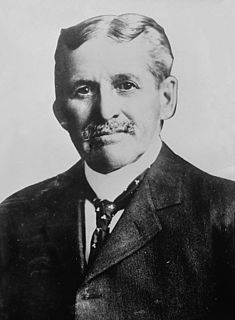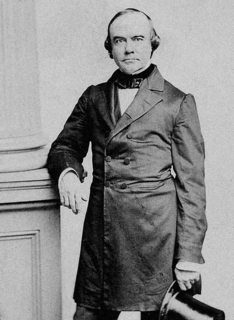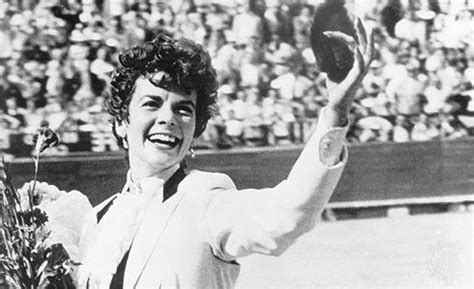A Quote by Weyes Blood
Seven Words' is a wanderer's tale, a well-worn subgenre in the tradition of farewell songs. The tune itself is trying to evoke the familiar act of leaving somebody in order to save them, or continue seeking.
Related Quotes
Sentences are not different enough to hold the attention unless they are dramatic. No ingenuity of varying structure will do. All that can save them is the speaking tone of voice somehow entangled in the words and fastened to the page for the ear of the imagination. That is all that can save poetry from sing-song, all that can save prose from itself.
There are some people that aren't into all the words. There are some people who would have you not use certain words. Yeah, there are 400,000 words in the English language, and there are seven of them that you can't say on television. What a ratio that is. 399,993 to seven. They must really be bad. They'd have to be outrageous, to be separated from a group that large. All of you over here, you seven. Bad words. That's what they told us they were, remember? 'That's a bad word.' You know bad words. Bad thoughts. Bad intentions.
The artist usually sets out -- or used to -- to point a moral and adorn a tale. The tale, however, points the other way, as a rule. Two blankly opposing morals, the artist's and the tale's. Never trust the artist. Trust the tale. The proper functions of a critic is to save the tale from the artist who created it.
When people are too present, too familiar or too in our face, something happens to us psychologically. We begin to tune them out, we begin to get sick of them, we begin to know them so well and become so familiar with who they are that we loose a bit of respect for them. You pass a certain threshold with the fact that you're too present in their lives, too much in their face and once that threshold is passed you're never going to repair it they have lost a certain respect for you.
I love you," he writes again and again. "I can't bear to live without you. I'm counting the minutes until I see you." The words he uses are the idioms of popular songs and poems in the newspaper. And mine to him are no less cliched. I puzzle over the onionskin, trying to spill my heart onto the page. But I can only come up with the same words, in the same order, and hope the depth of feeling beneath them gives them weight and substance. I love you. I miss you. Be careful. Be safe.
Sometimes I'm trying to communicate a feeling. Sometimes I can't piece it together into any kind of coherant thesis. I'm just trying to evoke some kind of mood, and put some kind of idea in somebody's head. If Marshall McLuhan or Harold Innis were looking at it, they would tell you that the genre of rock music isn't the best way to deliver a political message because it distorts it, it makes it into entertainment. Perhaps the best political message is just to speak it to somebody. I think that's something I'm always writing about in songs, just how to mediate, how to present something.
I do craft songs, that this is designed. It's almost like the song was written to produce this desired effect. And it probably really works for somebody. It's maybe somebody's favorite tune, and it's really hard to come down on that, even if I feel a little embarrassed for it. Because some songs are written like a commercial, and that can be a little strange.




































